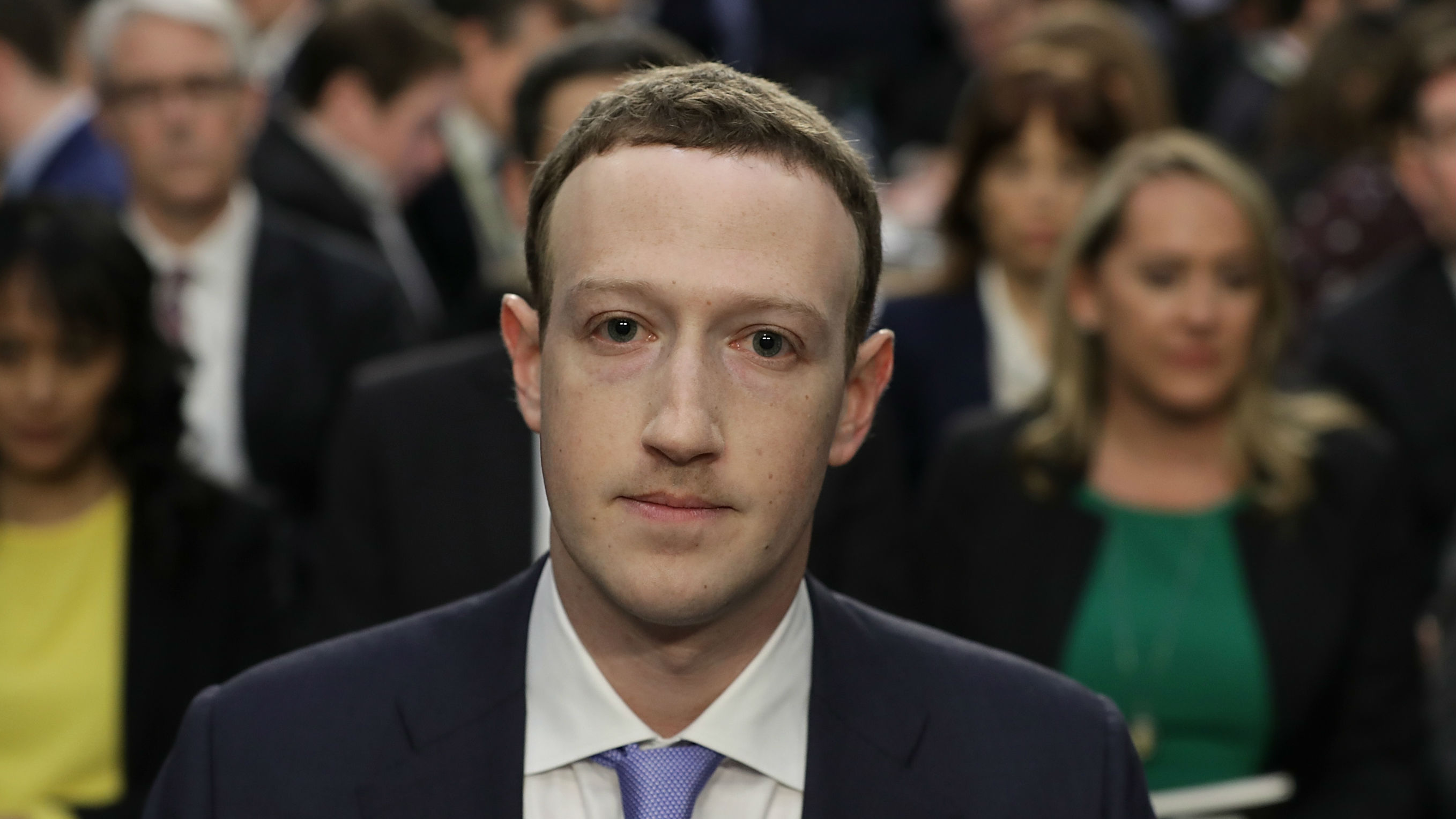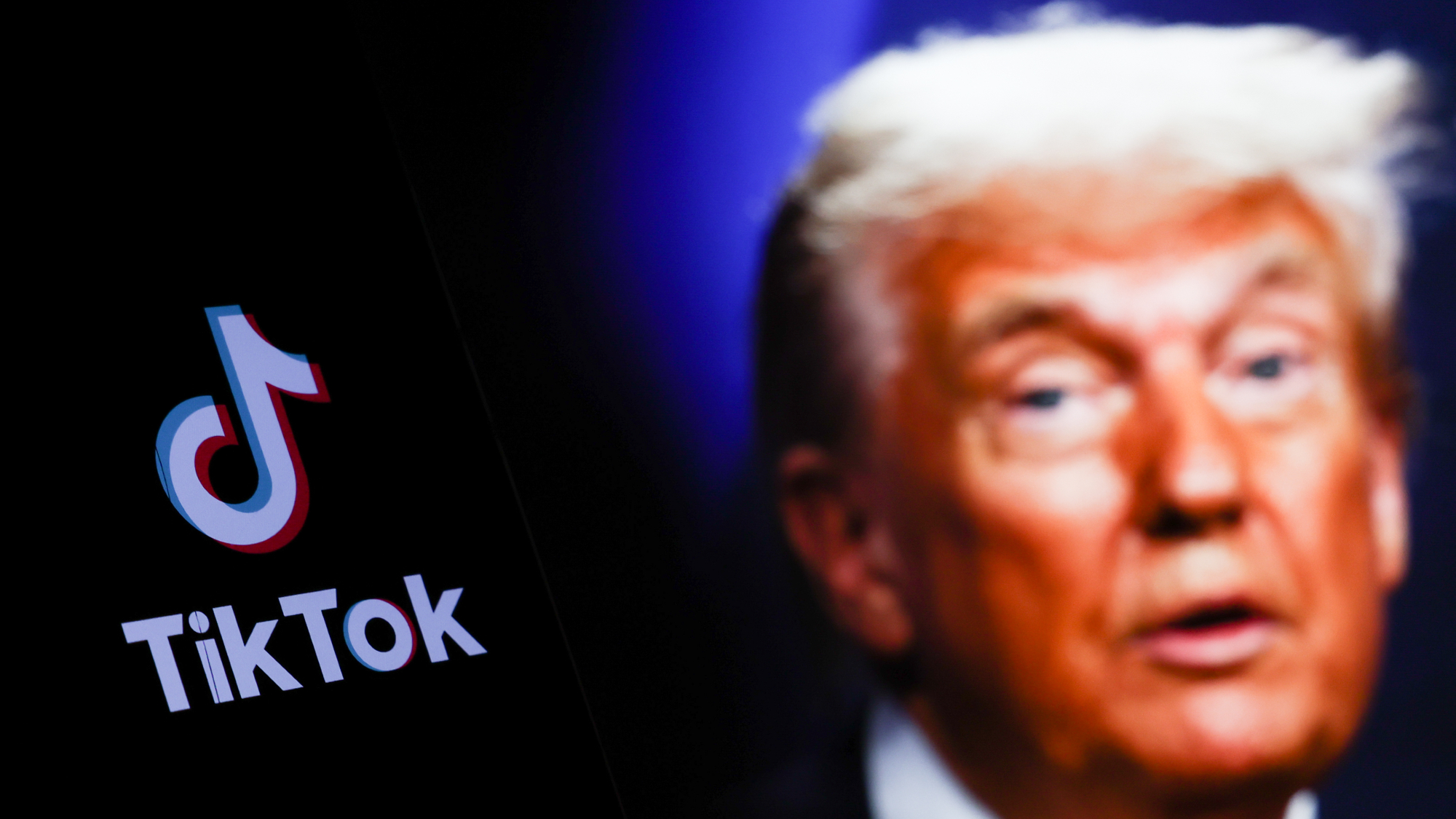US election 2020: how Facebook is set to ‘curb foreign interference’
Social media platform will ban foreign political adverts - but won’t silence Donald Trump

A free daily email with the biggest news stories of the day – and the best features from TheWeek.com
You are now subscribed
Your newsletter sign-up was successful
Facebook has pledged to combat foreign meddling in US elections by introducing new policies aimed at stopping the spread of fake news on the social media platform.
Foreign states and state-controlled organisations will be banned from placing political adverts, and paid-for content will be labelled with the identity of its source.
The California-based company says that users will also be able to turn off all social issue, electoral and political ads “so that they don’t see them in their feed – not just in the US but globally from the autumn”.
The Week
Escape your echo chamber. Get the facts behind the news, plus analysis from multiple perspectives.

Sign up for The Week's Free Newsletters
From our morning news briefing to a weekly Good News Newsletter, get the best of The Week delivered directly to your inbox.
From our morning news briefing to a weekly Good News Newsletter, get the best of The Week delivered directly to your inbox.
The new strategy follows widespread criticism of Facebook “for allowing Russian interference in the 2016 election and doing too little to stop the dissemination of misinformation by its users”, says The Times.
The move is also believed to be aimed at pre-empting a directive from the Department of Justice that could force social media companies to police content on their platforms more effectively.
However, Facebook has resisted calls to follow Twitter’s lead in fact-checking posts by high-profile political figures including Donald Trump, even though many experts say the US president’s false claims about state voting procedures “constitutes a form of voter suppression”, according to The Guardian.
The company’s new strategy is outlined in an article by founder Mark Zuckerberg (pictured top) in USA Today and by Nick Clegg, Facebook’s head of global affairs and communication, in a comment piece for The Telegraph.
A free daily email with the biggest news stories of the day – and the best features from TheWeek.com
Speaking to the BBC’s Today programme, former deputy prime minister Clegg said that while Trump’s posts had at times been “abhorrent”, the social media giant would do nothing to censor his online comments.
The “best way to hold politicians to account…is to make sure people can hear what they say”, Clegg said.
But many commentators in both the US and the UK insist that Facebook should be doing more.
“There is a lot more it should be doing, and its policies remain much weaker than those adopted by Google and Twitter,” writes Damian Collins MP, former chair of the Digital, Culture, Media and Sport Select Committee (DCMS), in The Telegraph.
“When we look at the specifics of the new policies that Facebook has announced, there are some positive changes, but they fall short of addressing the fundamental problems.”
Civil rights organisations are calling for a boycott of advertising on Facebook, saying the platform has done little to stop the promotion of “hate, bigotry, racism, antisemitism and violence”, reports The Times.
And former US vice president and Democratic presidential nominee Joe Biden has written an open letter to Facebook calling for the company to “proactively stem the tide of false information by no longer amplifying untrustworthy content and promptly fact-checking election-related material that goes viral”.
“Fundamentally not enough has changed, but other companies are now starting to take steps to act against harmful disinformation that they won’t,” concludes Collins in The Telegraph.
“If you were a bad actor wishing sow division and confusion with campaigns of fear and lies, Facebook would be your social media platform of choice.”
–––––––––––––––––––––––––––––––For a round-up of the most important stories from around the world - and a concise, refreshing and balanced take on the week’s news agenda - try The Week magazine. Start your trial subscription today –––––––––––––––––––––––––––––––
-
 Why is the Trump administration talking about ‘Western civilization’?
Why is the Trump administration talking about ‘Western civilization’?Talking Points Rubio says Europe, US bonded by religion and ancestry
-
 Quentin Deranque: a student’s death energizes the French far right
Quentin Deranque: a student’s death energizes the French far rightIN THE SPOTLIGHT Reactions to the violent killing of an ultraconservative activist offer a glimpse at the culture wars roiling France ahead of next year’s elections
-
 Secured vs. unsecured loans: how do they differ and which is better?
Secured vs. unsecured loans: how do they differ and which is better?the explainer They are distinguished by the level of risk and the inclusion of collateral
-
 Moltbook: The AI-only social network
Moltbook: The AI-only social networkFeature Bots interact on Moltbook like humans use Reddit
-
 Are Big Tech firms the new tobacco companies?
Are Big Tech firms the new tobacco companies?Today’s Big Question A trial will determine whether Meta and YouTube designed addictive products
-
 Is social media over?
Is social media over?Today’s Big Question We may look back on 2025 as the moment social media jumped the shark
-
 Australia’s teen social media ban takes effect
Australia’s teen social media ban takes effectSpeed Read Kids under age 16 are now barred from platforms including YouTube, TikTok, Instagram, Facebook, Snapchat and Reddit
-
 Why Trump pardoned crypto criminal Changpeng Zhao
Why Trump pardoned crypto criminal Changpeng ZhaoIn the Spotlight Binance founder’s tactical pardon shows recklessness is rewarded by the Trump White House
-
 Trump allies reportedly poised to buy TikTok
Trump allies reportedly poised to buy TikTokSpeed Read Under the deal, U.S. companies would own about 80% of the company
-
 What an all-bot social network tells us about social media
What an all-bot social network tells us about social mediaUnder The Radar The experiment's findings 'didn't speak well of us'
-
 Broken brains: The social price of digital life
Broken brains: The social price of digital lifeFeature A new study shows that smartphones and streaming services may be fueling a sharp decline in responsibility and reliability in adults